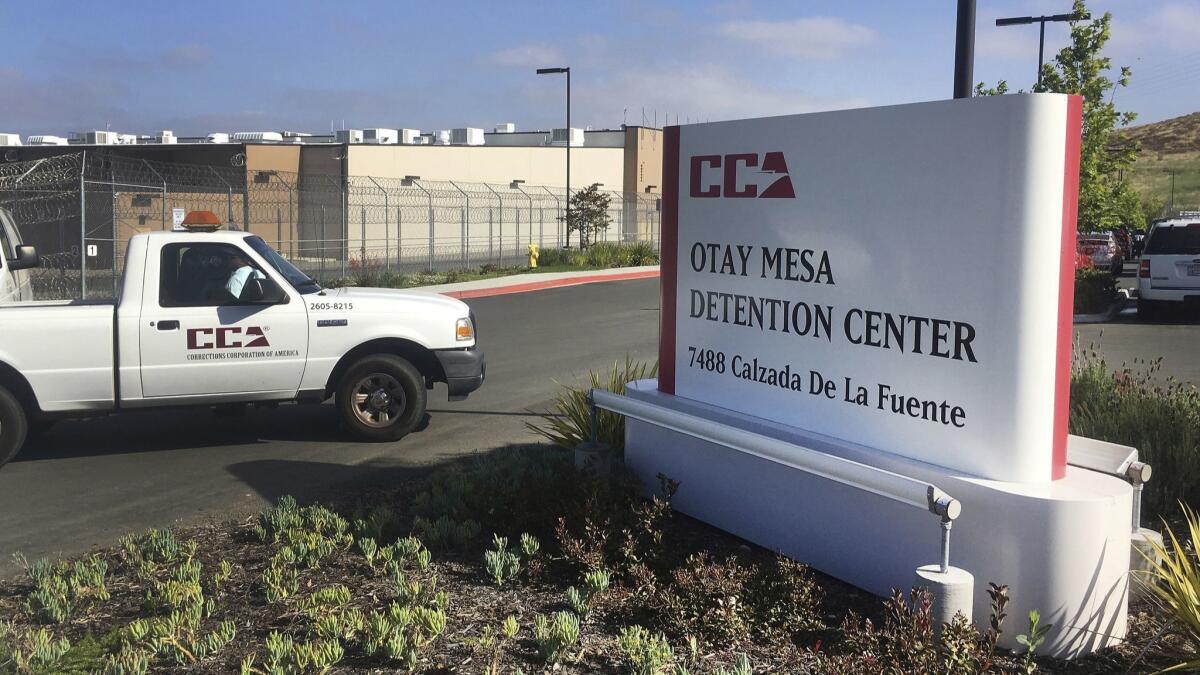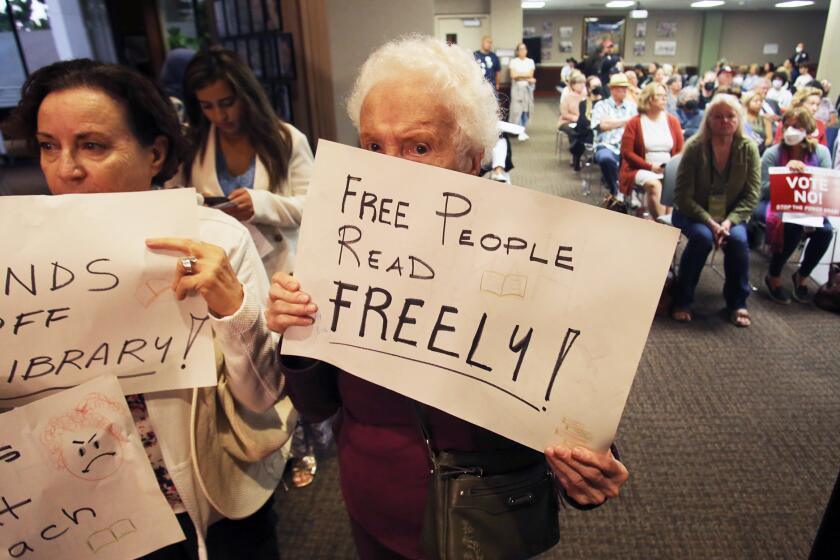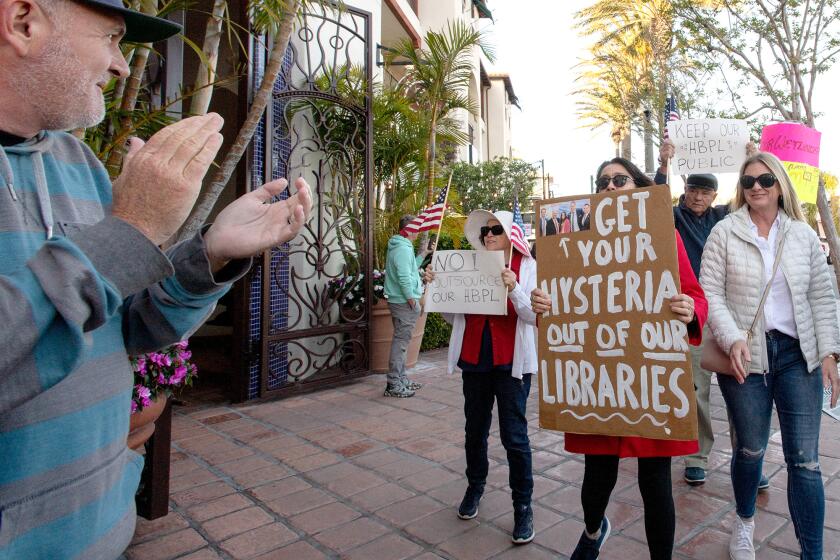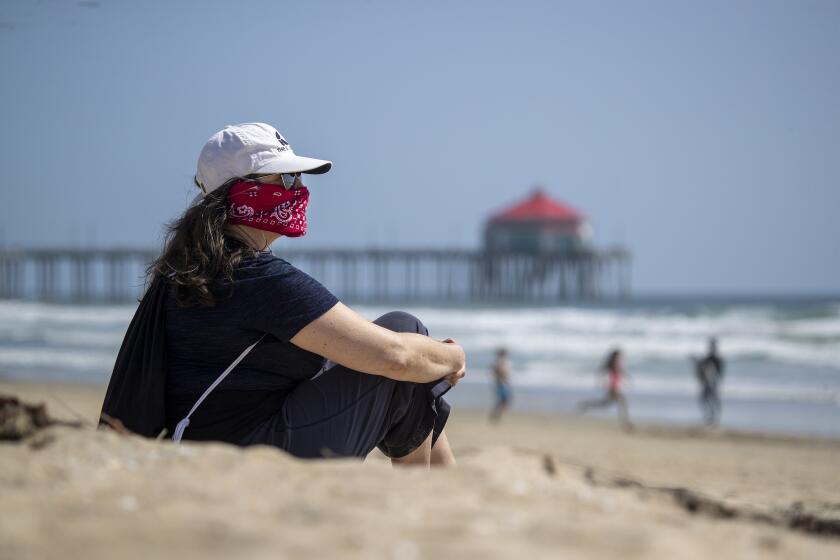Commentary: Immigration detention in the United States denies basic human freedoms

The meaning of freedom, and those who are entitled to it, has been a recurring battle throughout U.S. and world history.
To this day, countries continue to deny people their right to exist freely. Although the United States is ranked as one of the most “free” countries in the world, for immigrants it is one of the least free.
The United States runs the largest immigration detention system in the world, confining approximately 400,000 people a year.
Orange County is home to not one, but two, of these immigrant jails, where asylum seekers, legal permanent residents, victims of human trafficking and others are locked up, at times indefinitely. Many of them are often forced to work in these jails and prisons for $1 a day.
Now politicians are pouring salt in the wounds of detained immigrants by defending the private prison companies that run these euphemistically called “voluntary work” programs in immigration detention.
In fact, Rep. Dana Rohrabacher (R-Costa Mesa) recently signed onto a letter defending private immigrant prisons against lawsuits that allege that detained immigrants should not be forced to work for a $1 a day. Rohrabacher’s letter argues that because immigrants are not employees, they should not be able to sue to be paid for their work.
That’s right. They are not “employees.” They are modern-day slaves.
Immigration detention, which is a civil form of confinement, and therefore, should not be punitive, has become a modern-day form of human trafficking. Take Sylvester Owino and Jonathan Gomez, who alleged in a federal class action lawsuit that they were forced to work under the threat of additional punishment at the Otay Detention Facility in San Diego.
In a country that outlawed slavery over a century and a half ago, this is unconscionable and unacceptable. But given our country’s long, disturbing past, it is not surprising.
One of the uncanny features of immigration detention in the United States is how young and how old it is. Until the 1980s, this system didn’t exist in its current scale, and yet its existence today seems predetermined by this country’s founding, when it was legal to enslave black and brown bodies for personal and commercial gain.
As under slavery, and as today, people of color are abducted from their communities and forced to work for the profits of a ruling class, contributing to the country’s prosperity at the expense of their lives.
Rohrabacher and his 17 colleagues who signed onto that letter want their constituents to remain complacent in the face of injustice. Our elected officials want us to believe that if we are part of that privileged class that has citizenship, then we have nothing to fear or to fight for. If we are not at risk for being imprisoned or thrown into an immigrant jail, then we should remain silent.
But we cannot remain silent when our neighbors are being ripped from their communities, jailed for simply not having proper immigration papers and then forced to work essentially for us.
Since its inception, immigration detention was designed to jail people of color. For example, just like the Black Codes in the 1800s led to the increase in incarceration of black people, racial profiling today means that black immigrants are disproportionately represented in immigration detention. In fact, despite only comprising 7% of the undocumented population in 2017, 20.3% of immigrants in detention are black, according to the Atlantic.
But we don’t have to be part of the problem, remaining complacent as Rohrabacher wants. Complacency is complicity. We can be part of the solution to bring about and ensure freedom for immigrants.
We can start by electing officials who stand with our immigrant residents, not against them. And we can rebuild trust in our communities by closing immigrant jails and re-purposing them for services our community really needs — an opportunity that the city of Santa Ana is now considering.
More specifically, the Orange County Sheriff’s Department should end its contract with ICE. The Legislature last year already prevented the county from expanding its contract with ICE for the next 10 years through a budget amendment. The sheriff should take the next step and stand on the right side of history.
Former Costa Mesa resident CHRISTINA FIALHO is an attorney and co-executive director of the national nonprofit Freedom for Immigrants, formerly Community Initiatives for Visiting Immigrants in Confinement (CIVIC).
All the latest on Orange County from Orange County.
Get our free TimesOC newsletter.
You may occasionally receive promotional content from the Daily Pilot.



